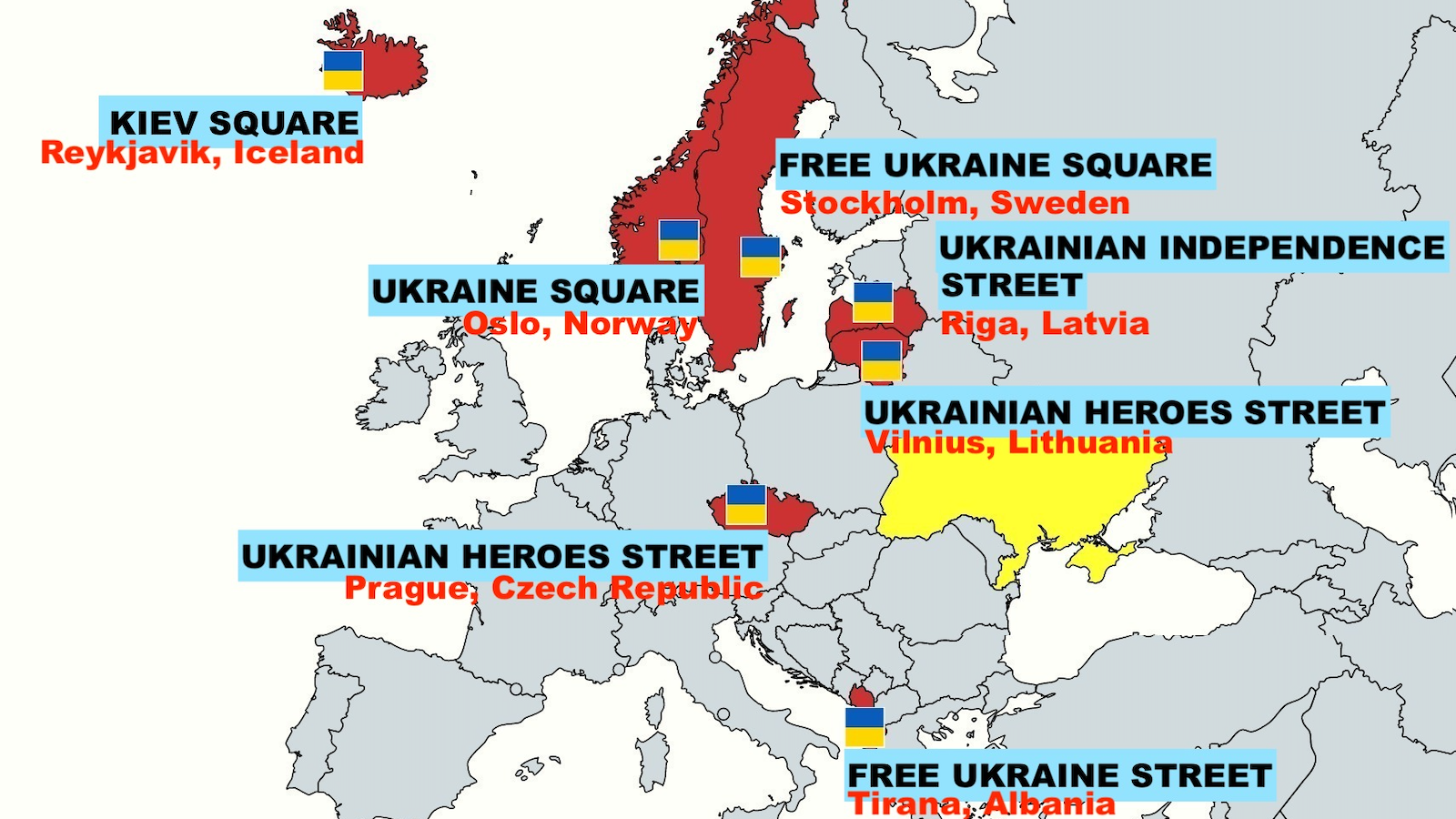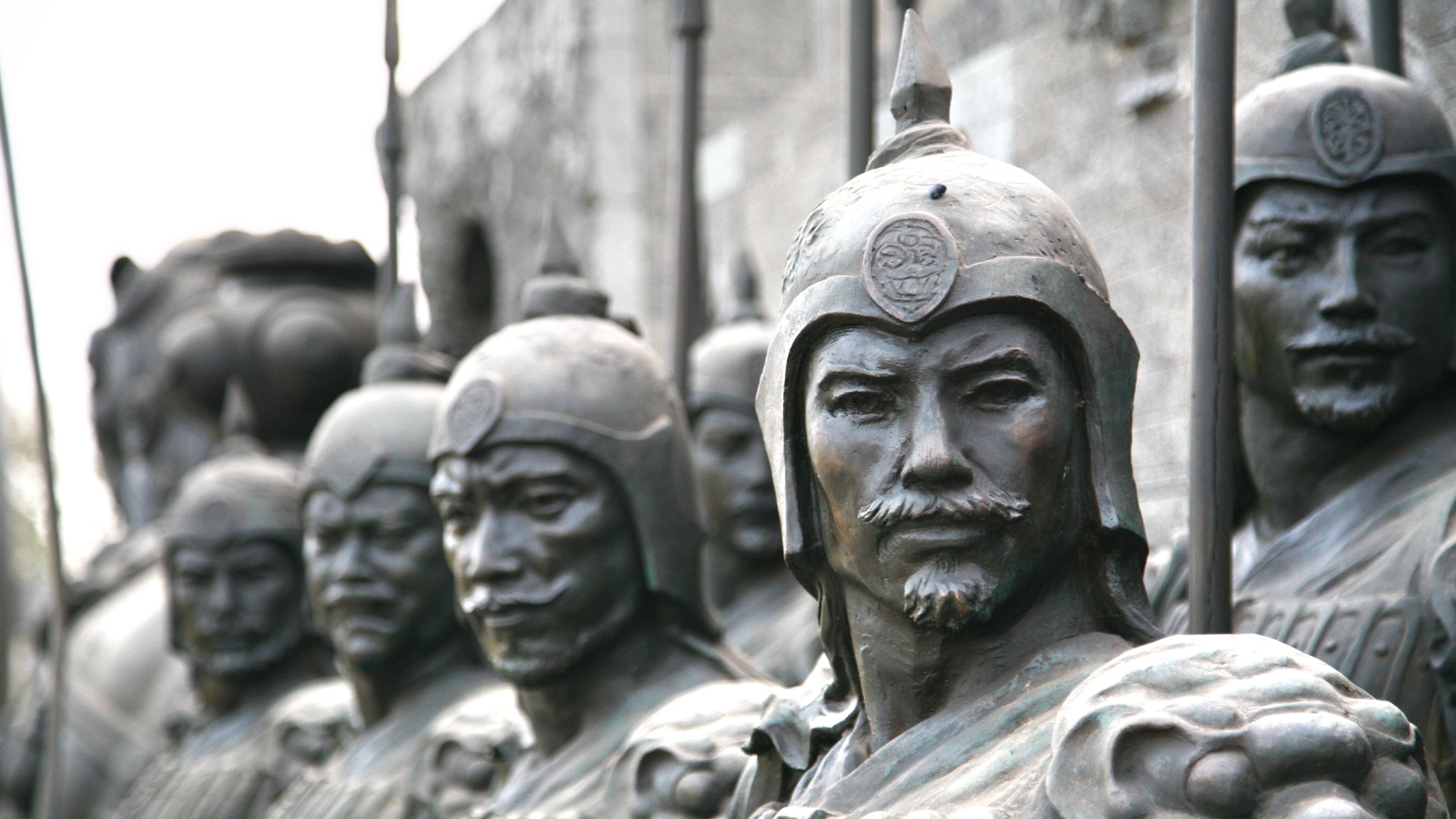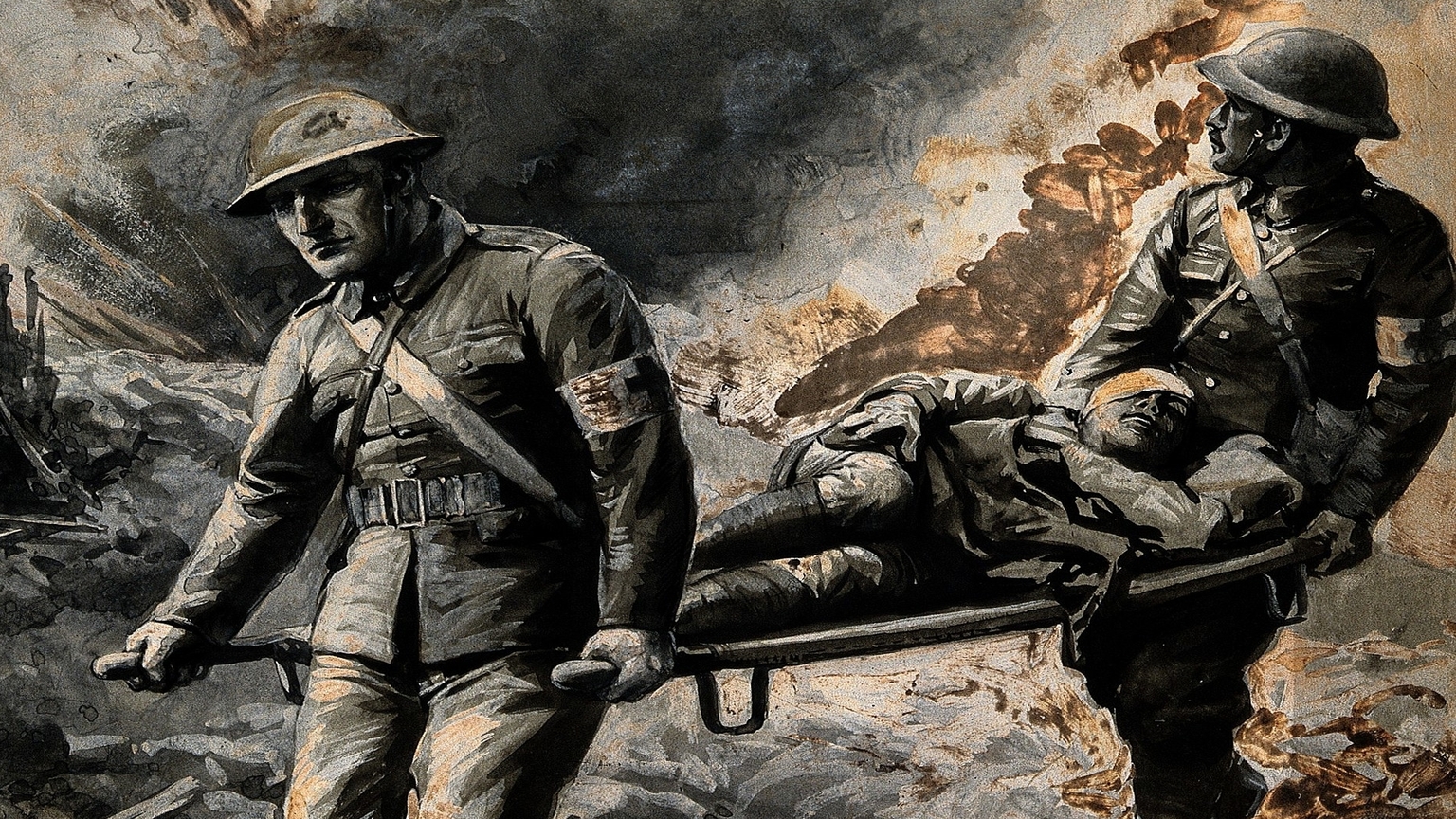There are two kinds of pacifism — but only one actually works

- There are two kinds of pacifism: absolute and relative. Absolute pacifists usually make religious arguments, while relative pacifists believe that war is always bad but occasionally necessary to accomplish a greater good.
- Gandhi’s non-violent campaign for Indian independence is often cited as a pacifist success. But this is a great oversimplification of what actually happened.
- Most of the time, pacifism simply means you die at the hands of your enemies.
In his 2008 book, Human Smoke, Nicholson Baker argues a controversial case: that the U.S. and UK provoked Germany and Japan into World War II. His book makes the point that stopping the Holocaust was never the reason the Allies went to war with Germany. Instead, this was retrospective justification to make everyone feel better during the bleak 1950’s recovery. Fighting Nazi Germany was never about protecting the Jews. It was about who was master of the world.
For Baker, World War II was a war like any other: It was all about domination. Britain, Germany, Japan, and the U.S. were equally warmongering. Indeed, Baker’s book even comes close at times to implying, in the words of Christopher Hitchens, that “[going to] war might actually have helped facilitate the Holocaust.”
The facts are not on his side. Even after war broke out in Europe in 1939, 94% of Americans were opposed to intervening. Following World War I, there was no appetite for another major conflict. But everything changed on December 7, 1941, when the Japanese bombed Pearl Harbor, a naval base in Hawaii. After the surprise attack, the U.S. entered the war.
For the purposes of this article, this is all beside the point. What we will focus on here is Baker’s argument that all wars are wrong. The idea of a “just war” is a myth, and violence always will beget more violence. If you want to end the cycle of destruction, you have to pursue peace at any cost. So, what is the pacifist argument — and has it ever actually worked?
Religious commands
The vast majority of history’s pacifists adopted that philosophy due to their religious beliefs. Martin Luther King Jr was a Christian minister, Abraham Joshua Heschel a Jewish rabbi, Rumi a Muslim mystic, and Gandhi a Hindu. Most religions have a central tenet that humans are precious or holy. As a result, religious pacifists believe that we should never, ever take a human life — under any circumstances.
For example, in Buddhism, the first precept of the Five Precepts prohibits the destroying of living beings (something Jains take very seriously). In Hinduism, Ahiṃsā (non-violence) is the highest Dharma (virtue or duty). In Christianity and Judaism, the Ten Commandments demand, “Thou shalt not murder,” while Jesus went even further and preached turning the other cheek.
The Quakers especially took these teachings to heart. The Quaker Peace Testimony reads, “We utterly deny all outward wars and strife and fightings with outward weapons, for any end, or under any pretense whatsoever.” And so, for much of history, the Quakers have refused military service and have participated in anti-war protests. In 1947, the Quakers won the Nobel Peace Prize for their humanitarian work during and after World War II. For a lot of religious believers, pacifism is absolute.
Does pacifism ever work?
Absolute pacifism, then, is the idea that war is never justified. But does pacifism ever work? Most often when people argue yes, they do so on the basis of one historical case study: Gandhi and Indian Independence. The story usually goes that Mohandas Gandhi’s non-violent civil disobedience, notably in the Salt March of 1930 and Quit India Movement in 1942, ultimately led to India’s independence in 1947. Without Gandhi’s peaceful resistance, there would have been no independence. But, there are three problems with this account.
First, Britain at the time (1947) was hardly ready to put up a determined fight for India. Not only had the British Empire taken a military and economic battering from World War II, but decolonization was increasingly popular in Britain itself (where the leftist Labour party, under Clement Attlee, was in charge).
Second, as Bertrand Russell points out, “When the enemy is resolute and brutal [absolute pacifism] has no success. The Church persecuted heretics and Jews relentlessly, even when they made no attempt at armed resistance. The Japanese, if they conquered India, would make short work of any movement of non-cooperation on the part of Gandhi’s followers.” Non-violence, alone, does not win change so long as those in power have guns and tanks and are not hesitant to use them.
Finally, Gandhi was not the only actor involved in Indian independence. It is a bit of an oversight to ignore the thousands of pro-Japanese, anti-British Indian Army troops who returned to India after World War II. While Gandhi was no doubt important, you cannot help but feel that British colonial generals might have been more concerned by India’s nationalistic army scattered around the country.
War and peace
The British philosopher, Bertrand Russell, was not religious (quite the opposite), but he was a pacifist. Russell’s pacifism — what he called “relative pacifism” — is more nuanced and perhaps more palpable. Russell argued two points:
First, “that very few wars are worth fighting, and that the evils of war are almost always greater than they seem to excited populations at the moment when war breaks out.” Even when the (purported) end goal is liberty, or regime change, or justice, the death and misery inflicted by a war will, most often, outweigh the good. (Russell was in favor of World War II, while being much maligned for his opposition to World War I.)
Second, there is a more general principle that “a civilized and humane way of life can hardly survive where wars are frequent and serious.” This is perhaps the more idealistic notion that the world will never be better — a utopia never reached — so long as we accept that wars can be good. Russell’s position is not that all wars are evil, but that wars should be seen as evil far more often than they are.
Relative pacifism argues that some wars are justified and some fighting is morally right. Russell, for instance, cites World War II and the French, Russian, and American revolutions as being such examples. If the end goal is sufficiently righteous, and the destination can only be reached with war, then war it must be.
On the flip side, history has not been kind to pacifism. Most of the time, it simply means you die at the hands of your enemies.





